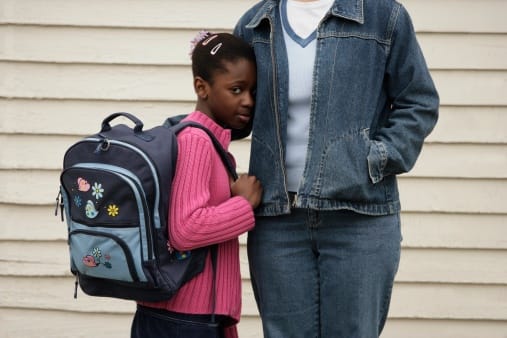In order to determine the effects of racism and prejudice on the psychological health and welfare of children and adolescents, a team of researchers from the University of Melbourne in Australia reviewed 461 case studies that explored potential links between racially-motivated discrimination and mental health difficulties in young people. Most of the kids whose experiences with racism were studied and analyzed came from the United States, between the ages of 12 and 18, and represented a cross-section of racial and ethnic groups. The one thing all had in common is that they had been the victims of discrimination and prejudice, at the hands of one or several individuals (none of the cases studied involved institutional or systemic racism). The investigators involved in this project, which was sponsored and supported by the University of Melbourne’s School of Population and Global Health, expected to find some type of cause-and-effect connection between exposure to racism and the development of mental health problems, and the information they uncovered proved to be quite notable and revealing: “(Our) review showed there are strong and consistent relationships between racial discrimination and a range of detrimental health outcomes such as low self-esteem, reduced resilience, increased behavior problems and lower levels of well-being,” wrote lead researcher Naomi Priest in a University of Melbourne press release. In addition to a general decline in their overall levels of psychological and emotional functioning, many of the young people who had been traumatized by racism were found to be suffering from depression and/or anxiety disorders, conditions that have become increasingly common in young people over the last several years. This most recent report confirms the results of a study that was published in the American Journal of Public Health in 2009. In this project, researchers interviewed more than 5,000 fifth-graders from diverse racial backgrounds in three American cities (Los Angeles, Houston and Birmingham) to find out more about their experiences with prejudice. What they found is that among those who believed they had been the victims of racial discrimination, there was a disproportionate number who had subsequently been diagnosed with various mental health disorders known to affect children. For example, 31 percent of the children who reported confrontations with racism were found to be suffering from depression, but overall only 7 percent of the fifth-graders who participated in the study exhibited the symptoms of this disorder. For attention deficit hyperactivity disorder (ADHD), the diagnosis rates were 21 percent for discrimination victims and 10 percent for the whole group, while 23 percent who experienced racism were suffering from oppositional defiant disorder (ODD) as opposed to just 8 percent of the general fifth-grade population.
Confrontations With Hate
It is well known that exposure to bullying predisposes young people to a range of emotional and behavioral difficulties. Racial discrimination involves one of the most insidious and pernicious forms of bullying regardless of how old the victim is, but when the person affected is a child or adolescent, the havoc it causes can run especially deep. Young impressionable minds are extremely vulnerable to peer opinion and have few defenses against the words or actions of adults in supervisory roles, and the contempt and disrespect that define discrimination based on race, creed or color can reach deeply into the sensitive soul of a child still trying to define herself and find her proper place in the world, leaving an ugly scar that can continue to cause damage long after the time of the initial incident (or string of incidents) has passed. Children subjected to prejudice and hatred can be heartbroken and overwhelmed by the experience, and it is not at all surprising to discover that kids put in this position are developing disorders and syndromes consistent with exposure to serious trauma. While there is no perfect defense against discrimination and the emotional turmoil and insecurity it can engender, it is clear that parents, teachers, and other adult authority figures have a constructive role to play in combating not just racism itself but the terrible effects it can produce in young people. In the case of schools the “zero-tolerance” policies toward bullying that most are adopting should emphasize that prejudice and racism are inherently abusive and cannot be considered acceptable in any circumstances. When racial incidents do occur on school grounds, proactive intervention is necessary to make sure such things don’t happen again, and counseling should be made available immediately to all those who are victimized by these events. On the home front, parents can make a positive impact in this area by sharing their own experiences with prejudice and talking to their kids about how they should handle such situations if and when they do occur, and of course moms and dads should do everything in their power to build their children’s sense of self-esteem and help repair it whenever it is compromised by a confrontation with rejection or hatred.
Planting the Seeds
It may not be possible to completely prepare children and adolescents for the shock they will experience if they are harassed or mistreated because of their skin color or ethnic background, but honest conversations about the topic both before and after trouble occurs can help young people develop the resources they need to contextualize their personal experiences and to see things from a larger perspective. Kids need to know in no uncertain terms that racial discrimination only reflects poorly on its perpetrators and not on its victims, and they should learn not to take the hateful feelings or hurtful actions of others to heart. Self-esteem is at the core of good mental health, and young people should never let outside forces compromise the pride they feel in their culture, their ethnicity and their families, since these are important aspects of their existence that help make them unique human beings worthy of respect. In the final analysis, racists are to be pitied rather than feared, and their opinions should be regarded by all intelligent people of any age as sad, stupid and irrelevant.

